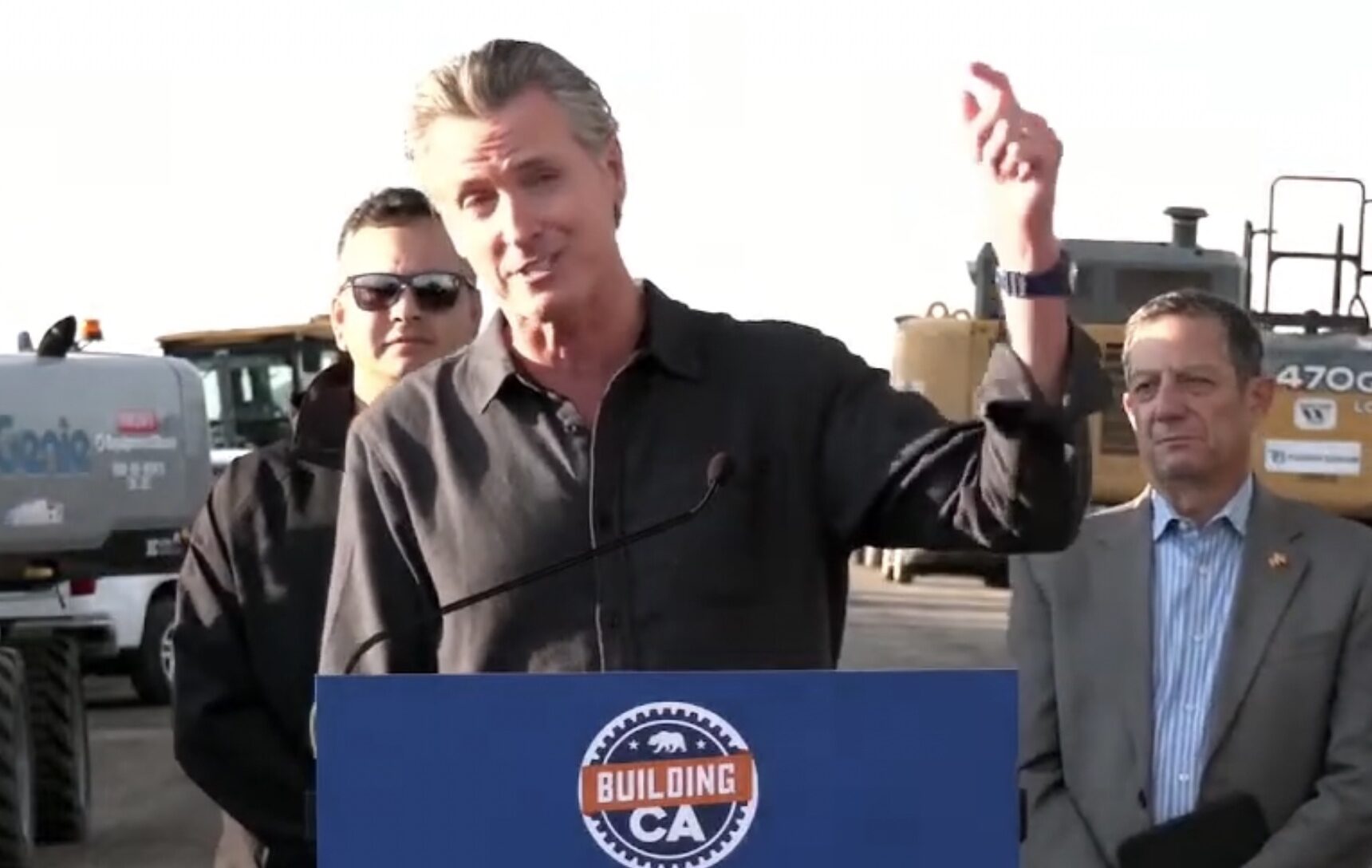Democrats and the debt
The article analyzes the fiscal records and outlook of Democratic politicians, especially governors who are potential contenders for the 2028 presidential nomination, in the context of America’s growing national debt problem. It highlights that while several Democratic governors such as Andy Beshear (Kentucky), Gavin Newsom (California), JB Pritzker (Illinois), and Josh Shapiro (Pennsylvania) have raised campaign funds beyond their states and represent different ideological wings of the party, none have demonstrated strong fiscal discipline or hawkishness.
The governors have overseen notable increases in state spending and budget growth, with mixed efforts on tax policy. For example, Beshear faced criticism for vetoing some tax cuts but approving others amid a GOP-led legislature and saw Kentucky’s budget rise sharply. Shapiro’s Pennsylvania budget also grew considerably under divided government, and Newsom’s California raised spending amid deficit concerns, contributing to population decline. Pritzker increased Illinois’ spending and taxes, with the state experiencing population loss due to high taxes.
Despite poor fiscal scores given by the Cato Institute to these governors,the article notes that state governors must balance their budgets annually,potentially making them better fiscal stewards than manny federal politicians.
The article also discusses other democratic figures, like Rep. Ro Khanna and Rahm Emanuel, who have fiscal policy implications. Khanna promotes progressive economic policies including wealth taxes and medicare for All, while Emanuel’s record as Chicago mayor involved budget increases and tax hikes to fund pensions.
A key theme is the tension within the Democratic Party over fiscal responsibility, especially given widespread public concern about the national debt and federal spending deficits. Although many voters express worry about debt and want deficit reduction, electoral outcomes often favor candidates who increase spending.
the piece underscores the looming fiscal challenges posed by entitlement programs like Social Security and Medicare, projected to run out of funds in the early 2030s. Political leaders will face tough choices involving entitlement reforms, defense spending, and taxation. Without bipartisan action and honest public discussion, the next presidential election risks perpetuating fiscal denial rather than addressing America’s debt crisis.
Democrats and the debt
As Democratic politicians prepare their shadow campaigns for the 2028 presidential nomination, voters face a disturbing prospect: a lack of solutions for America’s out-of-control debt.
While eight Democratic governors are considered likely candidates, only Govs. Andy Beshear (D-KY), Gavin Newsom (D-CA), JB Pritzker (D-IL), and Josh Shapiro (D-PA) have raised money outside their home states.
The four have different reputations. Newsom and Pritzker are considered avowed progressive Democrats. Beshear and Shapiro are considered centrists, mostly due to their states’ political makeup. Kentucky has a Republican-led legislature, while Pennsylvania has the nation’s only split legislature, with the GOP controlling the Senate and Democrats the House.
But a deeper dive into their records shows none of the governors is a fiscal hawk.
While Kentucky has enacted tax cuts under Beshear’s watch, some of those cuts happened despite the governor. Beshear initially vetoed HB 8 in 2022, arguing it jeopardized targeted corporate incentives — though critics said he was protecting special interests at the expense of broader tax relief. “[He] prioritized handouts to selected corporations over simpler tax-rate cuts to encourage all businesses to invest,” Chris Edwards wrote in the Cato Institute’s “Fiscal Policy Report Card on America’s Governors 2024.” Beshear approved more tax cuts last year, but there was speculation that the GOP’s veto-proof majority in the state legislature was a factor.
Beshear received a “D” in the fiscal report card.
The Bluegrass State also experienced an explosion of government spending during Beshear’s tenure. Kentucky has seen its budget rise from $11.4 billion in fiscal 2021 to $16.9 billion in fiscal 2026, according to the Urban Institute. It could have been much higher. Beshear’s original proposal was for the “largest budget that we’ve seen in history,” at $136.6 billion.
Shapiro, who has cultivated a reputation as a centrist, has an uneven record as well.
Shapiro, a finalist to be then-Vice President Kamala Harris’s running mate last year, has presided over significant spending growth in Pennsylvania. The state budget rose from $40.8 billion in 2023 to $44.6 billion in 2024 — up from $36.6 billion in 2019. The state’s Independent Fiscal Office has warned that the current $6.6 billion general fund surplus could be exhausted by 2025.
Shapiro received a “D” in Cato’s fiscal report card.
One thing dragging down Shapiro in the Keystone State is the budget timeline. The state government has failed to pass a budget on time during Shapiro’s governorship. While it’s easy to blame legislative gridlock — the GOP controls the Senate and Democrats control the House — critics have said Shapiro’s role cannot be ignored.
“He was absent from budget negotiations,” the Commonwealth Foundation wrote on July 1. “Instead of taking an active role in these conversations, he spent his time promoting himself on social media.”
Shapiro’s defenders argue he’s doing the best he can under divided government. Longtime Pennsylvania Democratic strategist TJ Rooney told the Washington Examiner that the governor is a known consensus builder, even if it takes longer than people hope.
“I sincerely do believe he has a chance to restore [fiscal] sanity [in Washington, D.C.],” Rooney said. “It’s not just wishful thinking or projection — he’s built a brand around it.”
Other governors took their spending to even higher levels.
During Newsom’s tenure as California governor, the state saw its general fund spending rise by 65%. The government responded to a $58 billion deficit last year by raising corporate taxes, reducing spending levels, and pulling money out of the Rainy Day Fund. California can no longer rely on federal COVID-19 funds to fix budget holes. The Urban Institute said the state government has spent all $41-plus billion.
It’s no wonder California has seen a population exodus, losing 239,575 residents between 2023 and 2024, according to the Census Bureau. Newsom’s poll numbers sit at a 46% disapproval rate, according to the Berkeley IGS poll. That’s slightly better than his 49% disapproval rate from 2023.
Newsom received a “D” from CATO for fiscal policy.
His progressive colleague in Illinois, Pritzker, has slightly better ratings — but not from a financial standpoint.
The billionaire governor has taxed and spent Illinois since becoming governor in 2019. The state has seen its budget rise from $36.1 billion in fiscal 2020 to $53.1 billion this year.
To pay for the spending, Pritzker pushed for billions of dollars in new taxes, including changing the state’s flat tax to a multirate tax. (Voters rejected the plans.) And while he increased the cigarette tax by $1 in 2019, he raised nicotine pouch taxes even further to 45%.
Illinois has seen more and more people leave to avoid those high taxes. The IRS ranked Illinois second on the list of states seeing the most population loss due to taxes, behind New York.
Pritzker received a “C” from Cato for fiscal policy in 2024, after getting an “F” the year before.
Despite the poor fiscal policy scores for the governors, Edwards expressed confidence that a governor would be better than someone already ensconced in Washington.
He cited the need for state governments to balance their annual budgets as a powerful requirement. “It’s a lot harder for state politicians to screw future generations with debt than [the] federal government,” Edwards told the Washington Examiner.
If politicians follow the strict limits, the budget and debt will be kept under control, he observed.
There are still several non-governors running at the top of the Democratic ticket.
Rep. Ro Khanna (D-CA) seems willing to take on his party. The five-term congressman wants Democrats to focus on the economy, technology, due process, and civil liberties. Khanna regularly visits other states, saying it’s important to listen to what voters want.
He’s no centrist. Khanna advocates a Marshall Plan for America, a tax on the wealthy, and Medicare for all. His rhetoric occasionally imitates Trump when talking about China and the World Trade Organization. When Khanna discusses economic patriotism, he mentions the importance of government involvement in directing industry. Khanna was a key supporter of the CHIPS and Science Act, a bill the Congressional Budget Office estimated would add $79 billion to the deficit through 2031.
Rahm Emanuel, a former Chicago mayor and former President Barack Obama’s chief of staff, has appeared on multiple podcasts and TV shows this year. He tangled with hosts on whether the Democratic Party was too focused on transgender issues in 2024, instead of crime and education.
Emanuel isn’t anyone’s example of a good fiscal steward. He regularly increased Chicago’s budget while in the mayor’s office, and he hiked taxes to pay for increased pension benefits. This included a 29.5% surcharge on water and sewer bills for the municipal employee pension fund.
That makes 2028 an interesting battle within the Democratic Party. Although likely candidates are attempting to put themselves in different fiscal lanes, the reality is that the most fiscally sane candidate could be Obama’s chief of staff. That leaves fiscal hawks in a strange position.
The big question remains whether voters believe the nation’s fiscal standpoint should be the most important issue when they cast a ballot.
Polls regularly show the public is concerned about the national debt. Gallup polls dating back to 2011 have found that at least 73% of those surveyed were worried about federal spending. This included 81% this past March. Pew Research found that 57% of Americans want the federal government to reduce the budget deficit.
But when it comes to the election, voters have regularly sent candidates who rack up more and more debt to Washington.
“If one were really serious about it, you would have to touch entitlements, you’d have to touch defense spending, and you’d have to raise taxes,” said Dan Turrentine, a Democratic strategist and co-host of The Morning Meeting on 2WAY. “Democrats have historically not wanted to touch entitlements, and Republicans haven’t wanted to raise taxes.”
That time may be coming sooner rather than later, particularly with the CBO projecting Social Security and Medicare will run out of money in 2033. That means a regular congressional bailout or benefit cuts.
Jason Pye, a senior policy adviser at the Independent Center, told the Washington Examiner that a wake-up call is coming, whether people like it or not.
TRUMP ADMINISTRATION TRIES TO CONTROL THE INFLATION NARRATIVE
“There has to be a conversation with voters about how we have to modernize trust fund programs that are fiscally unsustainable,” he said. “And how they’re going to accomplish that goal by reaching across the aisle.”
If no one in Washington is willing to lead on the debt, the next presidential election may be just another chapter in the nation’s fiscal denial.
Taylor Millard is a freelance journalist who lives in Virginia.
" Conservative News Daily does not always share or support the views and opinions expressed here; they are just those of the writer."




